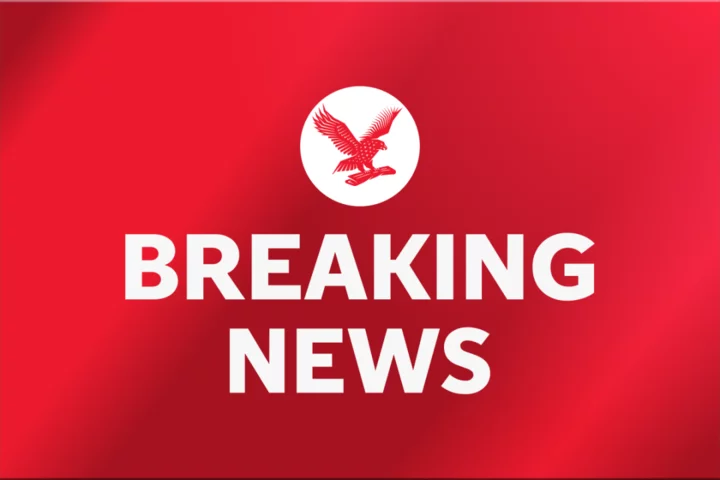
Nightclub fire in Spain kills at least six
At least six people have died in a nightclub fire in Spain. Another four people have been injured after suffering smoke inhalation in the blaze that broke out in the early hours of Sunday morning. Local reports say the tragedy occurred at a nightclub named locally as Teatre in the city of Murcia in south-east Spain. It is believed there could be more victims, as firefighters look for people reported as missing who are thought to have been in the nightclub at the time. More follows... Read More Swimmer aims to be first British woman to solo cross ‘most dangerous’ channels The leader of Spain's conservatives makes a 2nd bid to become prime minister Spanish griffon vultures are released into the wild in Cyprus to replenish the dwindling population
2023-10-01 17:15
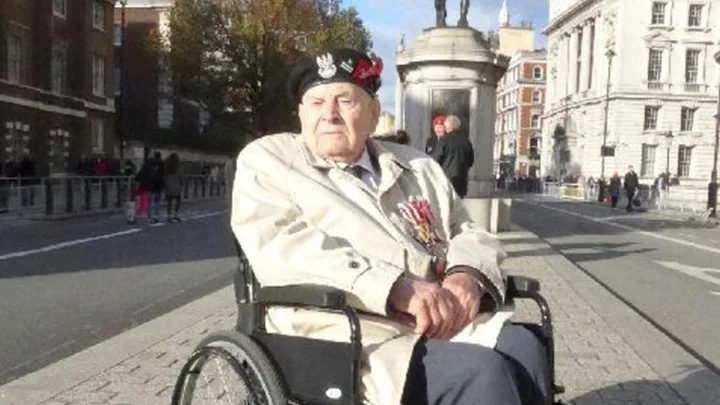
Colonel Otton Hulacki: Polish WW2 veteran dies aged 101
Colonel Otton Hulacki was unable to return to Poland after the war and settled on the Isle of Wight.
2023-10-01 16:20
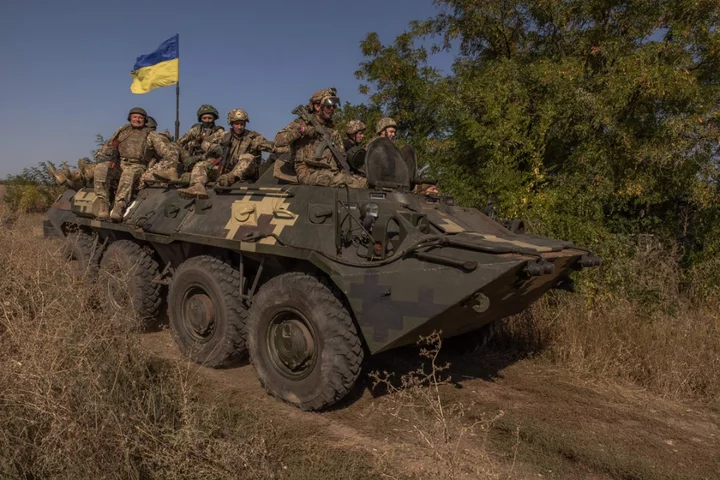
Putin’s casualties near 250 in a day as Russian ammunition depots blown up in southern Ukraine
Close to 250 of Vladimir Putin’s soldiers have been killed or injured in southern Ukraine in the past 24 hours, a Ukrainian military commander said. Ukraine’s authorities said the casualties occurred on Saturday in Tavria, a village in southern Ukraine’s Zaporizhzhia, just 23km from the major town of Tokmak, where Ukrainian forces are looking to advance for a strategic territorial advantage. “Over the last day, the enemy lost 248 people (84 dead, 163 wounded and one captured),” Brigadier General Oleksandr Tarnavskyi, who is in-charge of the strategic and operational group of forces in Tavriia, said in his Telegram channel on Sunday. He said the Russian losses also include 20 units of military equipment, including a tank, three anti-aircraft guns and three ammunition depots. “In general, during the past day, the enemy attacked our positions 23 times and carried out 717 shelling and 23 airstrikes. Artillery units of the Defense Forces of the Tavriia direction performed 1,236 fire missions during the day,” he said, detailing the military offensive in the area. The Ukrainian General Staff said its forces continued offensive operations in the Melitopol direction and near Bakhmut. Russian forces continued limited ground attacks in the Donetsk-Zaporizhia Oblast border area on 30 September but did not make any confirmed advances, said the Institute for the Study of War (ISW), a US-based think-tank monitoring the war, in its latest assessment of the battlefield situation. “Ukrainian forces continued counteroffensive operations in western Zaporizhia Oblast on 30 September but did not make any confirmed advances. The Ukrainian General Staff reported that Ukrainian forces continued offensive operations in the Melitopol (western Zaporizhia Oblast) direction,” the ISW said. While the town is 12 miles from the existing front line, wrestling its control before the rains wet the battlefield will result in Ukraine taking over Russia’s key railway, command and logistics hub. Russia’s forces have reportedly guarded the prized town with fresh defensive networks to halt Ukraine’s push to the north. Ukrainian forces have around 3-5 weeks to dismantle the second layer of Russian defences laid on the road and fields to Tokmak. Earlier this week, military analyst Roman Svitan said there have been “three or four days of painstaking hard work by our assault group and commanders in the area which have led to very serious problems for the Russians”. “I would not speak of a breakthrough until we reach Tokmak.” Read More Grant Shapps reveals military training plans inside Ukraine Ukraine aid left out of government funding package, raising questions about future US support Ukraine-Russia war - live: Moscow could annex more Ukrainian regions, says Medvedev Putin marks anniversary of annexation of Ukrainian regions as drones attack overnight Putin launches overnight drone and missile attacks on eastern and southern Ukraine
2023-10-01 15:52
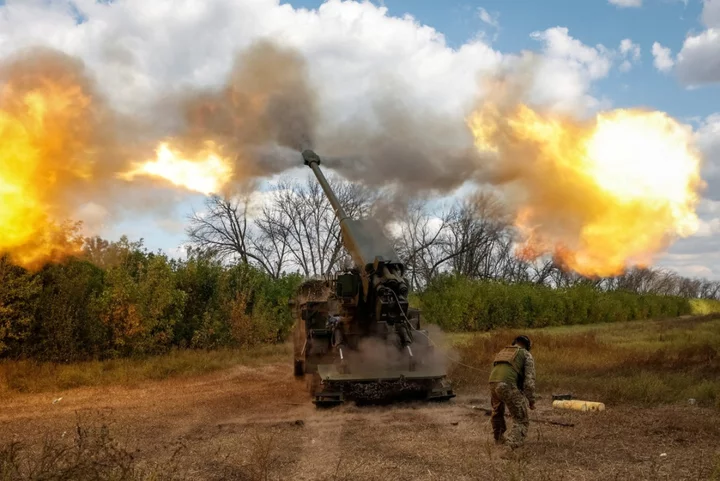
Ukraine-Russia war – live: Moscow could annex more Ukrainian regions, says Medvedev
Russia’s former leader has warned Moscow could annex more of Ukraine a year on from when they first claimed four regions. Dmitry Medvedev made the announcement to mark the anniversary of the Kremlin annexing Luhansk, Donetsk, Zaprizhzhia and Kherson oblasts - to declare them as part of Russia. Dmitry Medvedev, who serves as the deputy chair of Russia’s Security Council said, as reported in RTE:“”The special military operation will continue until the complete destruction of the Nazi regime in Kyiv,” said Mr Medvedev, who now serves as deputy chair of Russia’s Security Council. “Victory will be ours. And there will be more new regions within Russia.” The four regions remain occupied by Moscow but they do not have complete control of any of the regions and Russian troops face a tough Ukrainian counteroffensive. Kyiv began its counteroffensive in early June to try to recapture territories seized by Russia, which still controls about 18% of the Ukrainian territory. Ukraine reported advances in several directions and liberated over a dozen villages, but so far has not managed to retake any major cities. Read More Ukraine ‘hits power substation’ in drone attacks on Russian border regions Putin’s shameless UN charm offensive - with stolen grain from Ukraine Russian figure skater Kamila Valieva's Olympic doping case will resume for two more days in November Ukraine's Zelenskyy taps celebrities for roles as special adviser and charity ambassador
2023-10-01 15:20
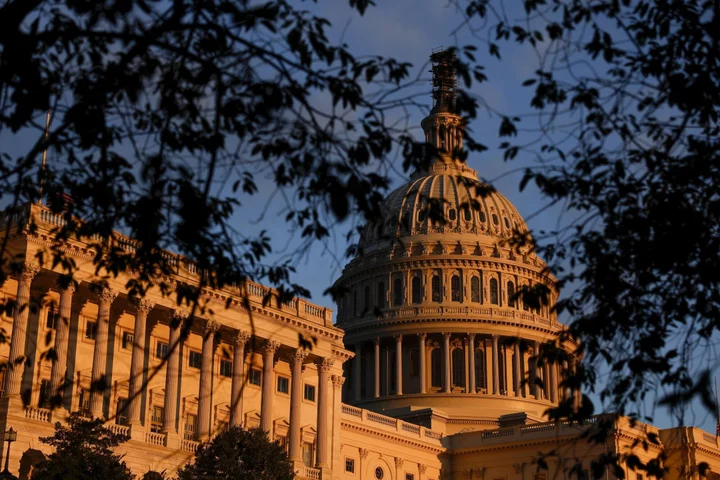
Senate Clears Bill to Avert Government Shutdown, Sends to Biden
The Senate overwhelmingly passed bipartisan legislation Saturday to avoid a disruptive US government shutdown, sending the bill to
2023-10-01 09:56
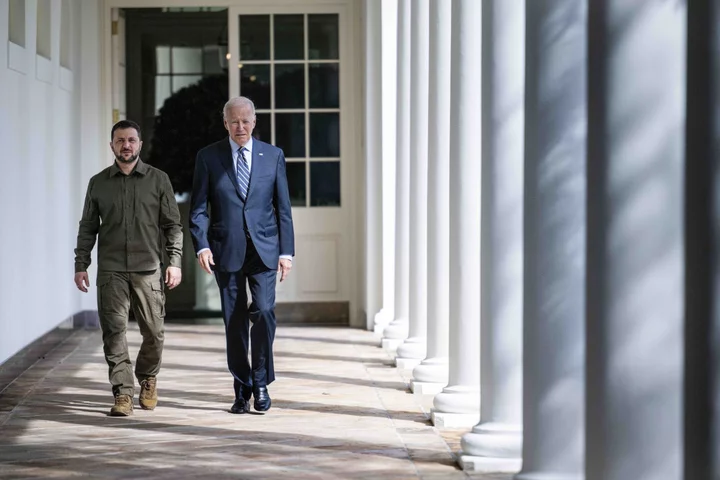
White House Reassures Ukraine With Aid Funding Omitted
President Joe Biden’s administration and senior Republicans sought to reassure Ukraine that US military aid won’t stop after
2023-10-01 05:53
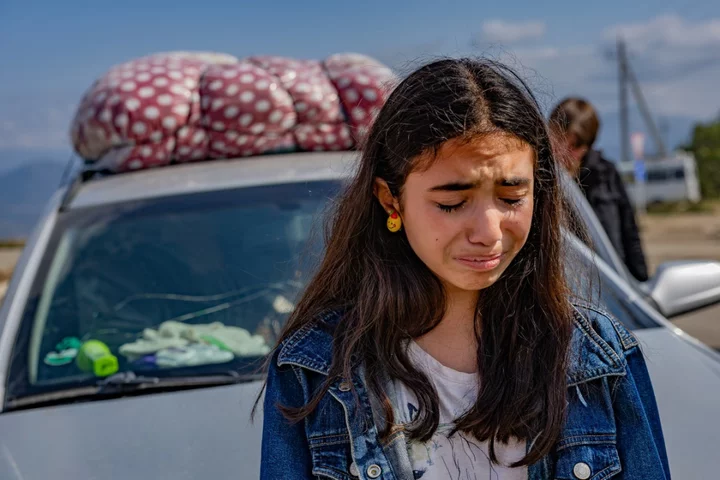
A People lost: The end of Nagorno Karabakh’s fight for independence
It is over and everything is lost. This is the refrain repeated by Armenian families as they take that final step across the border out of their home of Nagorno Karabakh. In just a handful of days more than 100,000 people, almost the entire Armenian population of the breakaway enclave, has fled fearing ethnic persecution at the hands of Azerbaijani forces. The world barely registered it. But this astonishing exodus has vanished a self-declared state that thousands have died fighting for and ended a decades-old chapter of history. Today, along that dusty mountain road to neighbouring Armenia, a few remaining people limp to safety after enduring days in transit. Among them is the Tsovinar family who appear bundled in a hatchback littered with bullet holes, with seven relatives crushed in the back. Hasratyan, 48, the mother, crumbles into tears as she tries to make sense of her last 48 hours. The thought she cannot banish is that from this moment forward, she will never again be able to visit the grave of her brother killed in a previous bout of fighting. “He is buried in our village which is now controlled by Azerbaijan. We can never go back,” the mother-of-three says, as her teenage girls sob quietly beside her. “We have lost our home, and our homeland.” “It is an erasing of a people. The world kept silent and handed us over”. She is interrupted by several ambulances racing in the opposite direction towards Nagorno Karabakh’s main city of Stepanakert, or Khankendi, as it is known by the Azerbaijani forces that now control the streets. Their job is to fetch the few remaining Karabakh Armenians who want to leave and have yet to make it out. “Those left are the poorest who have no cars, the disabled and elderly who can’t move easily,” a first responder calls at us through the window. “Then we’re told that’s it.” As the world focused on the United Nations General Assembly, the war in Ukraine and, in the UK, the felling of an iconic Sycamore tree, a decades old war has reignited here unnoticed. It ultimately heralded the end of Nagorno Karabakh, a breakaway Armenian region, that is internationally recognised as being part of Azerbaijan but for several decades has enjoyed de facto independence. It has triggered the largest movement of people in the South Caucasus since the collapse of the Soviet Union. Azerbaijan has vehemently denied instigating ethnic cleansing and has promised to protect Armenians as it works to re-integrate the enclave. But in the border town of Goris, surrounded by the chaotic arrival of hundreds of refugees, Armenia’s infrastructure minister says Yerevan was now struggling to work out what to do with tens of thousands of displaced and desperate people. “Simply put this is a modern ethnic cleansing that has been permitted through the guilty silence of the world,” minister Gnel Sanosyan tells the Independent, as four new busses of fleeing families arrive behind him. “This is a global shame, a shame for the world. We need the international community to step up and step up now.” The divisions in this part of the world have their roots in centuries-old conflict but the latest iterations of bitter bloodshed erupted during the collapse of the Soviet Union. The Karabakh Armenians, who are in the majority in the enclave, demanded the right to autonomy over the 4,400 square kilometre rolling mountainous region that has its own history and dialect. In the early 1990s they won a bloody war that uprooted Azerbaijanis, building a de facto state that wasn’t internationally unrecognised. That is until in 2020. Azerbaijan, backed by Turkey, launched a military offensive and took back swathes of territory in a six-week conflict that killed thousands of soldiers and civilians. Russia, which originally supported Armenia but in recent years has grown into a colder ally, brokered a fragile truce and deployed peacekeepers. But Moscow failed to stop Baku in December, enforcing a 10-month blockade on Nagorno-Karabakh, strangling food, fuel, electricity and water supplies. Then, the international community stood by as Azerbaijan launched a 24-hour military blitz that proved too much for Armenian separatist forces. Outgunned, outnumbered and weakened by the blockade, they agreed to lay down their weapons. For thirty years the Karabakh authorities had survived pressure from international powerhouses to give up statehood or at least downgrade their aspirations for Nagorno-Karabakh. For thirty years peace plans brokered by countries across the world were tabled and shelved. And then in a week all hope vanished and the self-declared government agreed to dissolve. Fearing further shelling and then violent reprisals, as news broke several Karabakh officials including former ministers and separatist commanders, had been arrested by Azerbaijani Security forces, people flooded over the border. At the political level there are discussions about “reintegration” and “peace” but with so few left in Narargno-Karabakh any process would now be futile. And so now, sleeping in tents on the floors of hotels, restaurants and sometimes the streets of border towns, shellshocked families, with a handful of belongings, are trying to piece their lives together. Among them is Vardan Tadevosyan, Nagorno Karabakh’s minister of health until the government was effectively dissolved on Thursday. He spent the night camping on the floor of a hotel, and carries only the clothes he is wearing. Exhausted he says he had “no idea what the future brings”. “For 25 years I have built a rehabilitation centre for people with physical disabilities I had to leave it all behind. You don’t know how many people are calling me for support,” he says as his phone ringed incessantly in the background throughout the interview. “We all left everything behind. I am very depressed,” he repeats, swallowing the sentence with a sigh. Next to him Artemis, 58 a kindergarten coordinator who has spent 30 years in Steparankert, says the real problems were going to start in the coming weeks when the refugees outstay their temporary accommodation. “The Azerbaijanis said they want to integrate Nagorno Karabakh but how do you blockade a people for 10 months and then launch a military operation and then ask them to integrate?” She asks, as she prepares for a new leg of the journey to the Armenian capital where she hopes to find shelter. “The blockade was part of the ethnic cleansing. This is the only way to get people to flee the land they love.” “There is no humanity left in the world.” Back in the central square of Goris, where families pick through piles of donated clothes and blankets and aid organisations hand out food, the loudest question is: what next? Armenian officials are busy registering families and sending them to shelters in different corners of the country. But there are unanswered queries about long-term accommodation, work and schooling. “I can’t really think about it, it hurts too much,” says Hasratyan’s eldest daughter Lilet, 16, trembling in the sunlight as the family starts the registration process. “All I can say to the world is please speak about this and think about us. “We are humans, people made of blood, like you and we need your help. “ Read More More than 70% of Nagorno-Karabakh's population flees as separatist government says it will dissolve ‘Centuries of history lost’: Armenians describe journey to safety after fall of Nagorno-Karabakh Nagorno-Karabakh: Tearful 16-year-old describes ‘bombing’ while she was in school Why this week's mass exodus from embattled Nagorno-Karabakh reflects decades of animosity
2023-10-01 00:24
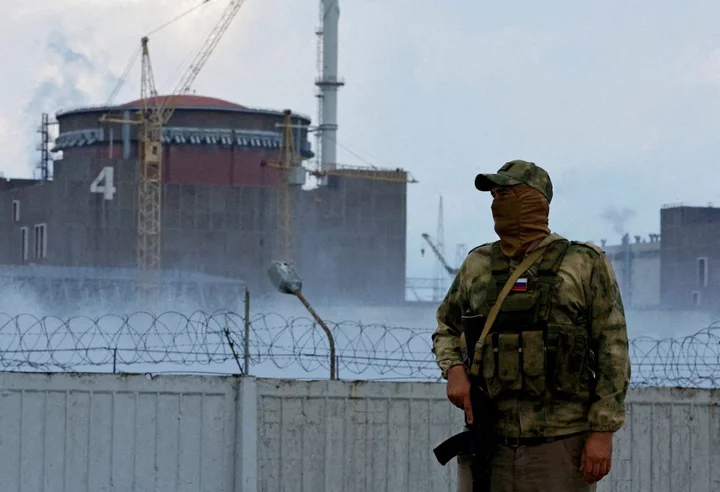
Ukraine-Russia war - live: Putin forces may have breached Romanian airspace during drone attacks
Nato member Romania said on Saturday morning Russia may have breached its airspace during attacks on southern Ukraine. The Kremlin has stepped up its attacks in Ukraine’s southern Odsea and Mykolaiv regions - near the border with Romanian - in recent days after exiting a deal allowing the safe passage of grain shipments via the Black Sea. “Following the detection of groups of drones heading towards Ukrainian territory near the Romanian border, residents in the Tulcea and Galati municipalities were alerted,” Romania’s defence ministry said in a statement. “The radar surveillance system ... indicated possible unauthorised entry into national airspace, with a signal detected on a route towards the municipality of Galati.” Earlier, Russian president Vladimir Putin ordered a former Wagner boss to take control of “volunteer units” and rejoin the frontline in Ukraine. Signalling the Kremlin’s intention to continue using the mercenaries following the death of Yevgeny Prigozhin, Putin told Andrei Troshev in a meeting late on Thursday that his task is to “deal with forming volunteer units that could perform various combat tasks, primarily in the zone of the special military operation.” Read More Ukraine ‘hits power substation’ in drone attacks on Russian border regions Putin’s shameless UN charm offensive - with stolen grain from Ukraine Russian figure skater Kamila Valieva's Olympic doping case will resume for two more days in November Ukraine's Zelenskyy taps celebrities for roles as special adviser and charity ambassador
2023-09-30 16:52
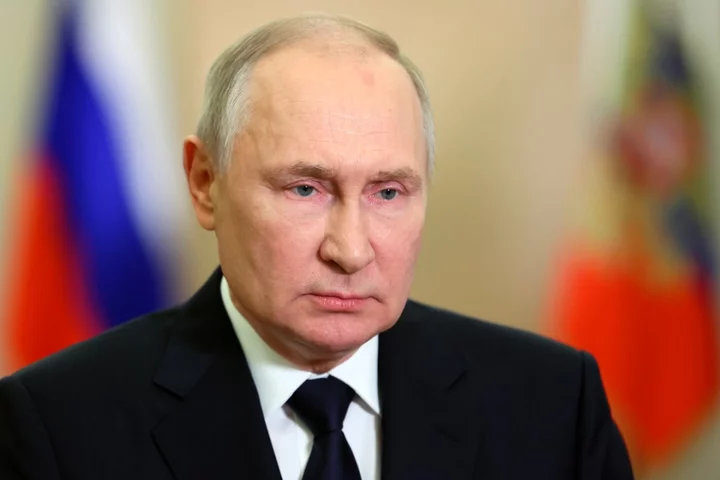
Putin marks anniversary of annexation of Ukrainian regions as drones attack overnight
Russian President Vladimir Putin on Saturday insisted that the residents of four Ukrainian regions that Moscow illegally annexed a year ago “made their choice — to be with their Fatherland.” In an address released in the early hours to mark the first anniversary of the annexation, Putin insisted that it was carried out “in full accordance with international norms.” He also claimed that residents of the Donetsk, Luhansk, Zaporizhzhia and Kherson regions had again expressed their desire to be part of Russia in local elections earlier this month, in which Russia’s Central Election Commission said that the country’s ruling party won the most votes. The West has denounced both the referendum votes carried out last year and the recent ballots as a sham. The votes were held as Russian authorities attempted to tighten their grip on territories Moscow illegally annexed a year ago and still does not fully control. A concert was held in Red Square on Friday to mark the anniversary, but Putin did not participate. Meanwhile, in Ukraine, air defenses shot down 30 out of 40 Iranian-made kamikaze drones aimed at the Odesa, Mykolaiv and Vinnytsia provinces overnight, the Ukrainian air force said Saturday. Vinnytsia regional Gov. Serhii Borzov said that air defenses shot down 20 drones over his central Ukrainian region, but that a “powerful fire” broke out in the town of Kalynivka when a drone struck an unspecified infrastructure facility. Romania’s Ministry of National Defense said on Saturday that a possible unauthorized entry into its national airspace occurred overnight amid the bombardment. It said the radar surveillance system of the Romanian Army detected “a possible unauthorized entry” into the national airspace of NATO member Romania, with a signal detected toward the city of Galati, which is close to the border with Ukraine. “At this moment, no objects have been identified that fell from the airspace onto the national territory,” the statement read, adding that NATO allies were informed in real time and that searches will continue through Saturday. Emergency authorities issued text message alerts overnight to residents living in the counties of Galati and Tulcea, after detecting what the defense ministry said was “groups of drones heading toward Ukrainian territory” near the border. In recent weeks, Romania has found drone fragments on its soil from the war next door at least three times as Russian forces carry out sustained attacks on Ukraine’s Danube ports. Russia’s Defense Ministry said Saturday that it had shot down nine Ukrainian rockets fired at its southern Belgorod region, which borders Ukraine. Local officials in Russia’s Bryansk region, also bordering Ukraine, reported disruptions to power supply following an unspecified attack on the town of Pogar. Drone strikes and shelling in the Russian border regions are a regular occurrence. ___ AP writers Stephen McGrath in Sighisoara, Romania, and Elise Morton in London contributed to this report. ___ Follow the AP’s coverage of the war at https://apnews.com/hub/russia-ukraine Read More Ukraine war’s heaviest fight rages in east - follow live Charity boss speaks out over ‘traumatic’ encounter with royal aide Pope creates 21 new cardinals who will help him to reform church and cement his legacy Slovakia election pits a pro-Russia former prime minister against a liberal pro-West newcomer UAE's president-designate for UN COP28 offers full-throated defense of nation hosting climate talks
2023-09-30 16:46
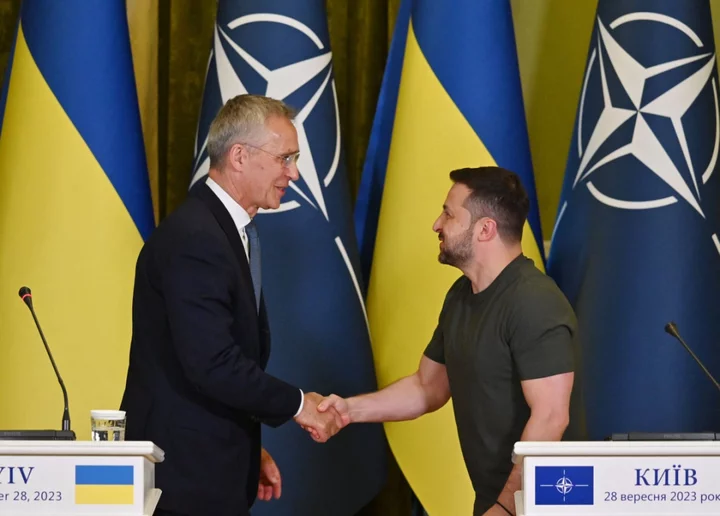
Confident of Poland continuing Ukraine military support despite strained ties, Nato chief says
Poland will find ways to address disagreements with Ukraine without the recent differences impacting its military support, said Nato’s secretary general Jens Stoltenberg. The two neighbouring nations have encountered friction in their ties after Poland – that has been one of Ukraine’s fiercest allies through the course of Russian invasion – decided to extend a ban on Ukrainian grain imports. Last week, Poland said it would only carry out previously agreed arms deliveries to Ukraine and choose to focus on rebuilding its own weapons arsenal. “I’m expecting and I’m confident that Ukraine and Poland will find a way to address those issues without that impacting in a negative way the military support to Ukraine,” Mr Stoltenberg said in an interview in Copenhagen on Friday. The announcement coincided with tensions peaking between the two neighbours after Ukraine president Volodymyr Zelensky said some countries were “feigning solidarity by indirectly supporting Russia” with a ban on grain imports. After Russia launched a full-scale invasion of Ukraine last February, a majority of Ukrainian grain ended up in Europe as the main Black Sea shipping lanes all but closed. Imports were then blocked by five countries to try and protect EU farmers amid fears the amount of grain would drive down local prices. Poland extended the ban after the European Union-brokered deal expired last week. On Tuesday, Mr Zelensky repeated his accusation on Eastern European nations backing Russia during his speech at the UN General Assembly. Poland then summoned the Ukrainian ambassador to its foreign ministry to protest Mr Zelensky’s comments. Hours later, Warsaw announced it would no longer be supplying weapons to Ukraine. “We are no longer transferring weapons to Ukraine, because we are now arming Poland with more modern weapons,” the prime minister said. Poland has previously sent 320 Soviet-era tanks and 14 MiG-29 fighter jets to the war-torn country. Mr Morawiecki also issued a warning to Kyiv, saying if they “escalate the conflict”, additional products will be added to the list of banned imports. “I am warning Ukraine’s authorities. Because if they are to escalate the conflict like that, we will add additional products to the ban on imports into Poland,” he said. “Ukrainian authorities do not understand the degree to which Poland’s farming industry has been destabilised. We are protecting Polish farmers.” Ukraine’s other ally Slovakia is also seeing discussions of halting support to Ukraine. The Nato nation has been a staunch ally of Kyiv and sent military equipment including MiG-29 fighter jets and an S-300 air defence system to its neighbour. But opposition leader and former prime minister Robert Fico has pledged to end that military support. Mr Fico is leading polls ahead of Saturday’s election. “Whatever new government they will have in Slovakia, we will continue to sit down at Nato meetings,” Mr Stoltenberg said, “and I’m confident that we’ll find ways to continue to provide support – as we have been after every election in this alliance since the war started”. Read More Plans for Poland's first nuclear power plant move ahead as US and Polish officials sign an agreement Why has Poland stopped supplying weapons to Ukraine? Zelensky accuses ‘some friends in Europe’ of playing into Russia’s hands Poland done sending arms to Ukraine, leader says, as trade dispute escalates
2023-09-30 14:58
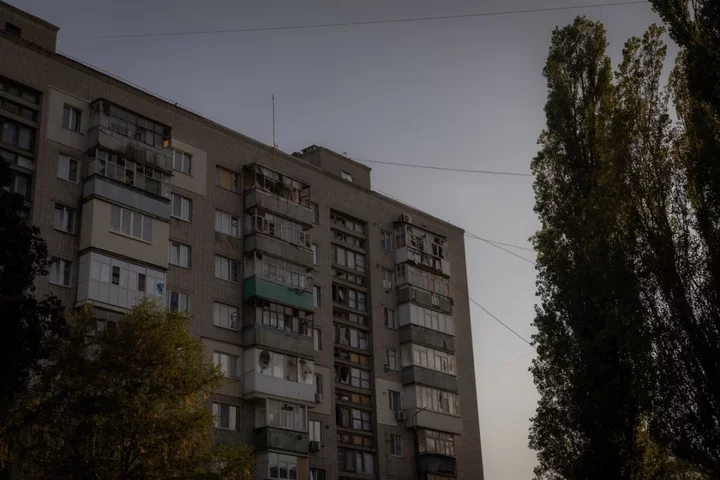
Putin launches overnight drone and missile attacks on eastern and southern Ukraine
Vladimir Putin’s forces launched overnight drone and missile attacks that targeted Ukraine’s eastern and southern parts as the war-hit country’s officials ordered the evacuation of an infrastructure site that was targeted. Ukraine’s air force said Russia’s forces launched a swarm of Shahed drones from Crimea and the Black Sea in an overnight offensive on Saturday. One of the strikes targeted an infrastructure site in the Vinnytsia region as the air force warned of the threat of ballistic missiles. Authorities asked people to stay in shelters and said a general evacuation was not yet necessary apart from the immediate area where the strike occurred. “At this time there is no need for a general evacuation, apart from the immediate area around the site of the hit,” said Vasyl Polishchuk, head of administration for the town of Kalynivka, according to the town’s website. “Attack UAVs are moving in the north-west direction. A threat to the Vinnytsia region. Stay in shelters!” it said on its official Telegram channel. The officials did not mention what target was struck and what weapon had been used. However, regional governor Serhiy Borzov said the hit was made on an unspecified infrastructure site, a term used by Ukrainian officials to refer to facilities involved in power generation and other industries. The governor announced an air raid alert at 1.10am local time and within an hour, he reported a strike. An initial air raid warning for an anticipated strike was announced at 11.17pm in western Ukraine’s Vinnytsia, Cherkasy and Kirovohrad oblasts. Ukrainian air forces issued more than 40 air raid alerts on its Telegram channels for Donetsk, Odesa, Kherson, Mykolaiv, Zaporizhzhia and Kharkiv regions among several other cities as Russian forced launched a massive wave of attacks overnight. Air-raid alerts and warnings were issued throughout the night. It warned of “the threat of using ballistic weapons in areas where the alarm has been declared”. “Don’t Ignore Airborne Alarms! Head for cover,” read another alert around 6.30am. On Friday evening, the air force of Ukraine’s armed forces said several groups of drones were fired from the Crimean peninsula. Read More Ukraine-Russia war – live: Putin orders former Wagner boss to control ‘volunteer units’ and rejoin frontline Ukraine urges other nations to boycott playing Russia after Uefa decision Russia is set to avoid a full ban from the 2024 Paralympics in Paris Putin recruits former Wagner commander ‘Grey Hair’ Troshev to oversee Ukraine mercenaries Ukraine ‘hits power substation’ in drone attacks on Russian border regions
2023-09-30 14:51
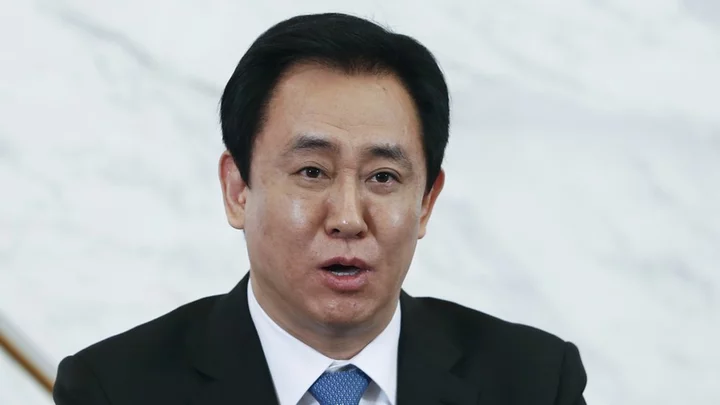
Evergrande: The rise and fall of the property giant's billionaire founder
Hui Ka Yan, the founder of a crisis-hit Chinese property giant, is under police surveillance.
2023-09-30 06:24
You Might Like...
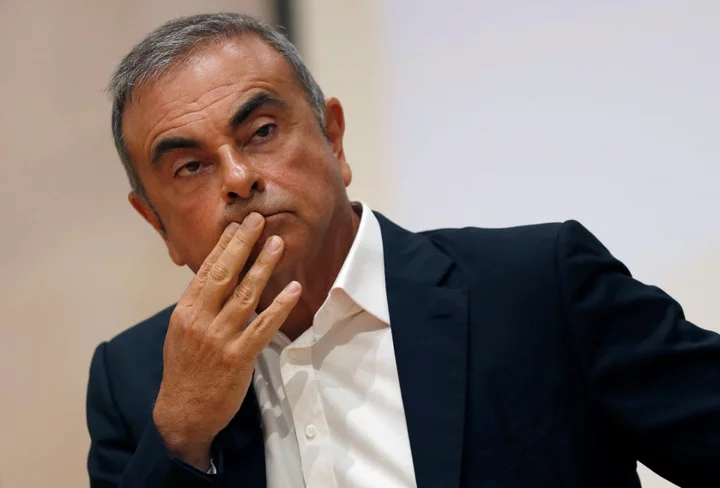
Auto tycoon Ghosn denies payments to former French Cabinet minister
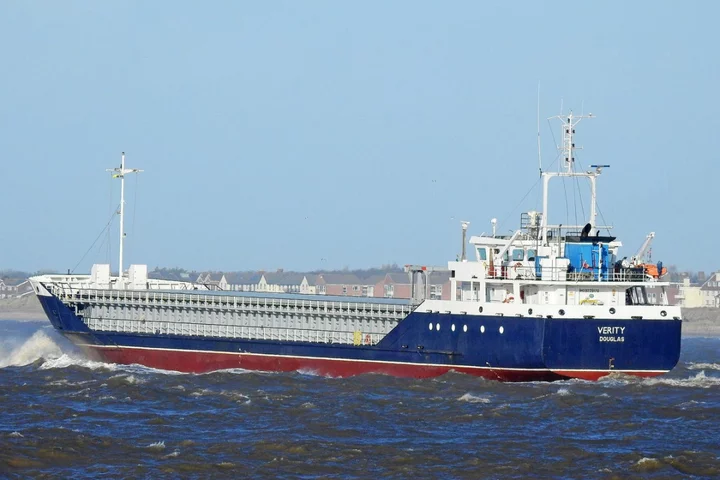
Crew members missing after British cargo ship in crash in North Sea
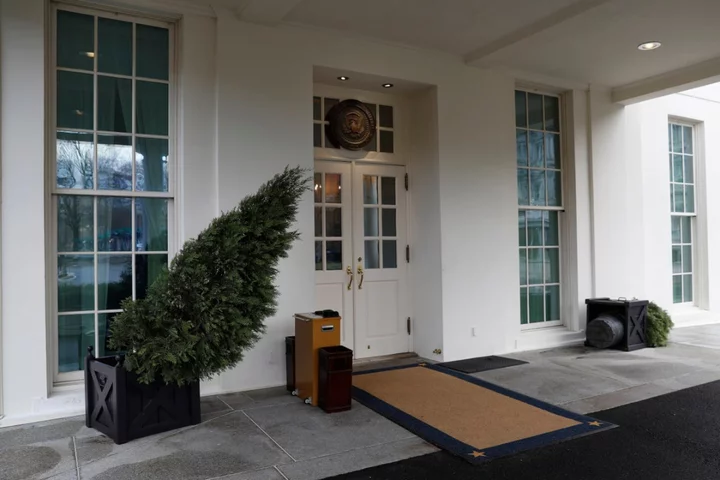
Tests show white powder found at White House is cocaine
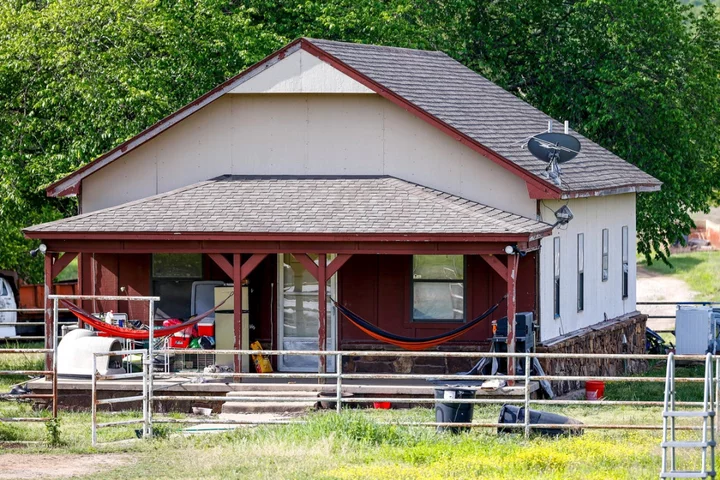
32 phones ‘linked’ to Henryetta murder-suicide crime scene as officials probe Jesse McFadden’s past
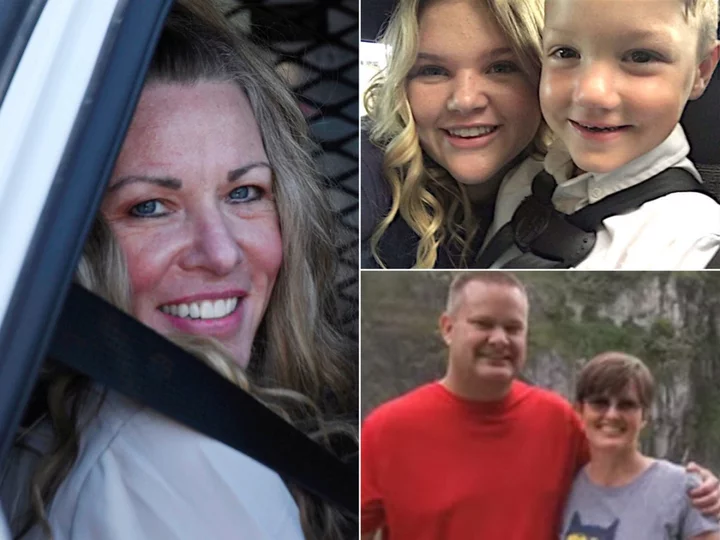
Lori Vallow trial - live: ‘Cult mom’ declines to give any defence in children’s murders
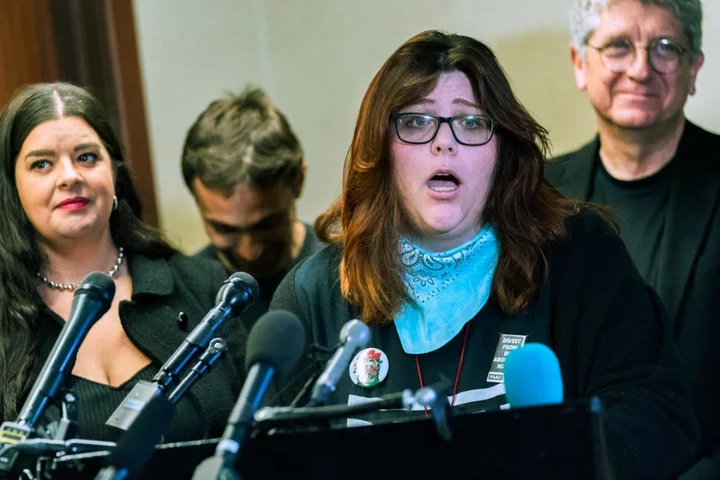
Anti-abortion activist who kept foetuses in her home is convicted of blocking access to clinic
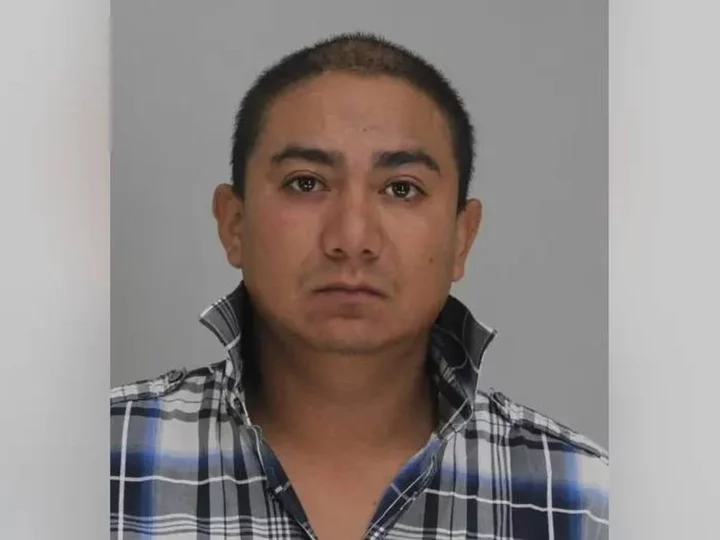
Dallas police arrest suspected serial killer they believe murdered three women
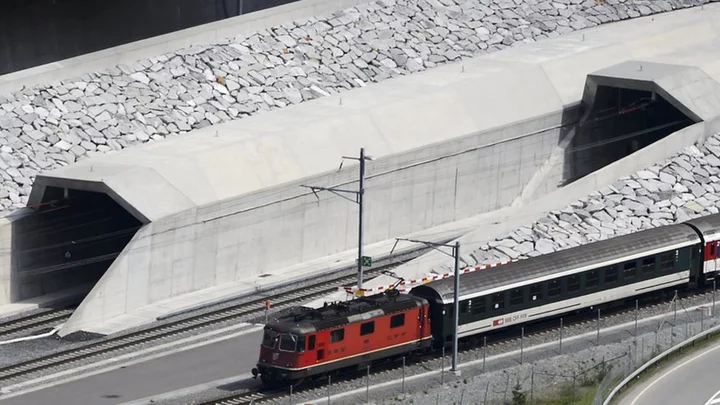
Gotthard: World's longest rail tunnel shut for months after freight crash
